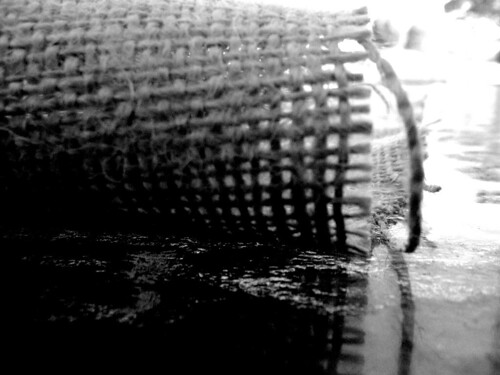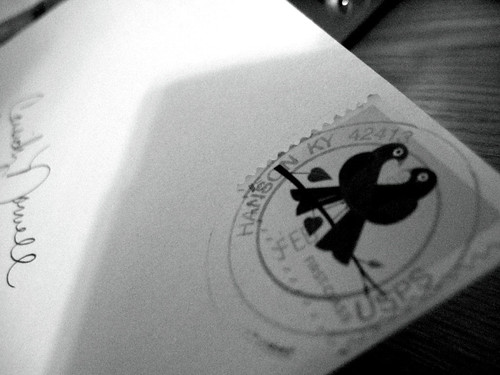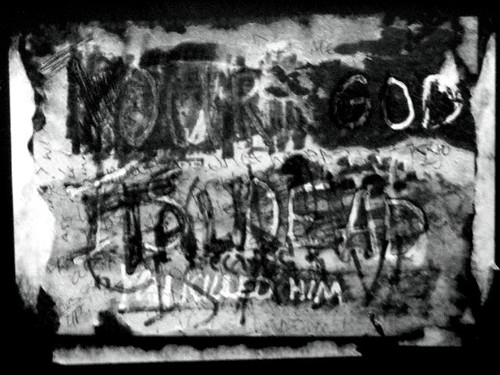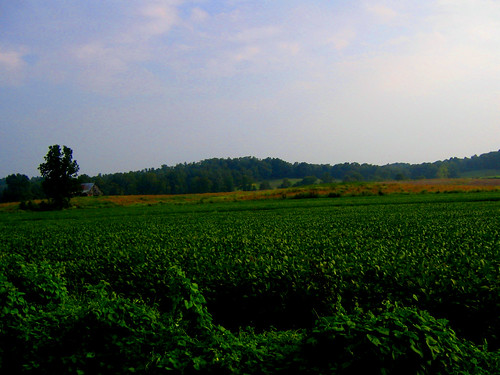11 October 2006

A wind in the door.
Madeleine L'Engle, after writing A Wrinkle in Time, wrote three other books that continue the story of Meg, Charles Wallace, and Calvin. The first follow-up story is called A Wind in the Door, and as weird and science-fictiony as it is, I think I might like it more than the first book.
The underlying theme of the book is that size is relative. Perhaps it takes reading the book to really understand the implications and magnitude of this idea, but here's an example. Think of how incredibly small we, as humans, are compared to the universe. This book then asks you to think about, say, a cell in your body. How small it is compared to its relative universe, your body. And if you paid any attention at all to your biology class in high school, you know that even the human cell is a densely complex thing. We also know that something as (relatively) small as a cell has an immense effect on our bodies. For instance, what about a cancer cell? Its effects are felt not only throughout the body, but also it affects the people who know and love that person. And the chain reaction continues to cosmic levels.
Size is relative and, as the book suggests, not all that imporant. Regardless of how small or large you seem next to someone or something else, there is always something incredibly larger or incredibly smaller that is just as important as you are -- as complex and unique as you are.
24 February 2006

Enmeshed.
I think BarbCobb talked about this in humanities class once. Something about life being like a cloth, a weaving. And we are the threads. We are dependent on each other, and if one thread is pulled out, the whole thing unravels.
I'm not sure she made that analogy. But I wonder.
Are we the sum of our experiences? How different would we be if someone was missing from our lives? How different would the lives of others be without us? It seems easy to think that we are individuals on clean, linear A-B trajectories. But we're not, I don't think. We are all enmeshed in one other somehow. And I don't think it is as simple as the choose-your-own-adventure books, as if our path is determined by choices and experiences traced along a fractal diagram.
I think it's more like a woven tapestry -- more complex and beautiful than we think.
> > Discuss
14 February 2006

Artifact.
I am intrigued by postmarks. I guess I don't look at every piece of mail and scrutinize the red stamp, but this one caught my eye. It's so perfect. How often do you see the mark directly on top of the stamp? And it's almost completely even, clear, and legible. Also, orientation is nearly aligned with the angles of the envelope. I find it remarkable.
Postmarks are so unique. Not just their placement or legibility, but what they say. They seem to embody split seconds. A time and a place. A certain documentation personalized for each correspondence. Much like snowflakes, no two are exactly alike. And I, being one more for the reading of letters and numbers rather than crystalline patterns, fancy these oft-overlooked markings. They're like little works of art, little texts that are (usually) easily discernible.
I must say, a digital time stamp on an email or on a blog entry has zero character and holds no fascination for me. And surely someday, tangible correspondence will no longer exist in the form of post. I'll miss seeing the haphazardly wrought stamp marks. Of course, they'll probably be kept as artifacts of olden days when such cumbersome tasks, such as handwriting, were performed.
> > Discuss
10 February 2006

Communicative disease.
By being a language major, being currently enrolled in a communication class, and having a communication major as a best friend, I should know what the word communication means. But it sure is hazy.
In the class I'm taking (communication in the classroom), we have debated what is and isn't considered communication. Some people have a difficult time grasping the concept that you don't have to try to communicate, but I think I'm under the (possibly erroneous) impression that we communicate continually. Well, except in states of cognitive unresponsiveness -- about which I am not 100% certain. So if we communicate all the time, what's this communication breakdown that the world is experiencing?
It's interesting to me that we have labeled this time in history The Communication Age. Also called the The Technological Age. Technology has become synonymous with communication, basically. Now, my OrgCom-approved vocabulary is rusty, but isn't technology (email, text messaging, instant messaging, telephone, voicemail, etc.) the context of the communication with language most often being the medium? (It's getting all jumbled up in my head because the History of the English Language according to Lorrah says that language is "conscious communication that is consistent within a culture.") Anyway, I think all this terminology is irrelevant to what I want to say.
And what I want to say in pretty circular, so if your head's not spinning yet, hang on.
Technology -- what has been called communication and is at least supposed to be making the world a smaller place by facilitating near-instant, wide-spread communication -- has been blamed for the communication breakdown. This term communication breakdown I'd say, refers to the dwindling of human contact and interpersonal communication. Because we all now have to have a cellphone stuck to one ear and an earbud in the other, we cannot even communicate with those around us. Or can we?
Like I've already said, we are always saying something -- with or without words, with or without intention. And when we are so distracted by the pieces of silicon and plastic wedged in our heads, what we are saying is pretty clear: I couldn't care less about what's going on around me. That's be a pretty offensive message to send to other people. But here's the rub: No one is receiving the message because we have also blocked up our receptors.
I forgot one thing: In the communication model, there is a recipient of a message. But there are no more recipients. Or at least there are only a few. We have to listen, too. And it's hard to listen when we don't shut up.
I don't mean to be negative. Really. And I'm sure this rambling is uniformed and full of holes and generally incoherent. But are we just sending messages out into the air with no one to receive them? We're all trying to say something --and I know what we all have to say is important and significant -- but it just floats away from us into an atmosphere of unretrieved messages. It's not unlike a book, which says nothing at all until someone picks it up and reads it. It's not unlike me typing all of this and then sending it out into the unknown -- not knowing and maybe not even caring if I'm heard.
That's not healthy.
Very Loosely Associated: Golden Silence
> > Discuss
09 February 2006

Clarity.
There's nothing quite like the feeling of clarity. I like it when things are clean, clear, and crisp. I like when things appear bright, balanced, and bearable. I want to feel relaxed, radiant, and rested.
Nothing clarifies like a healthy dose of alliteration.
> > Discuss



> > Discuss